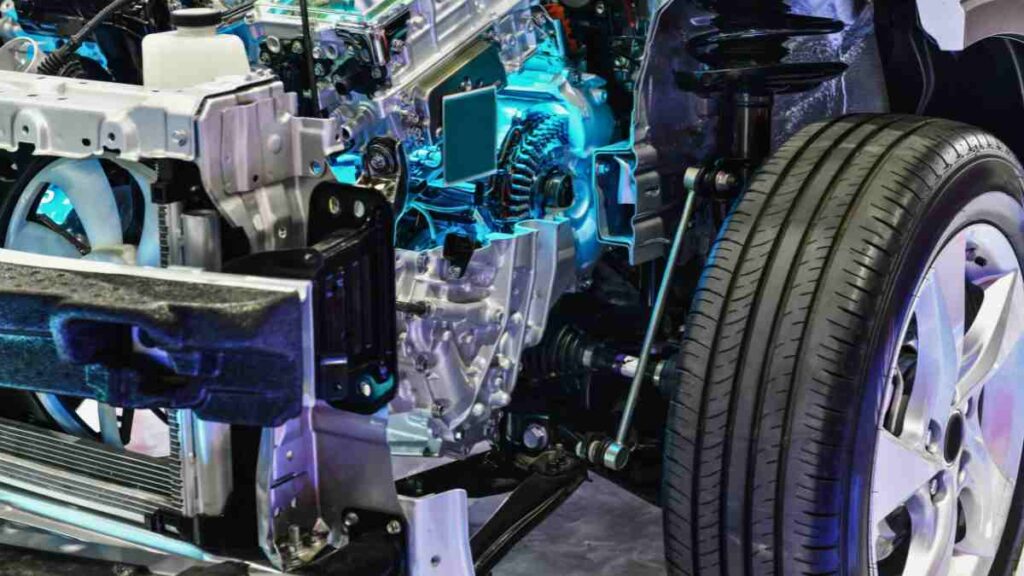When purchasing a vehicle, reliability is a crucial factor that can significantly influence your decision. Every year, Consumer Reports surveys its members to create a highly regarded, large-scale study that assesses the reliability of a wide range of car brands and models.
This comprehensive report, which analyzes over 330,000 vehicles, offers an in-depth look at the strengths and weaknesses of each manufacturer. From mechanical components to the most sophisticated electronic systems, every aspect of the vehicle is meticulously examined.
Electric cars
In addition to the overall results, which highlight the brands that require fewer visits to the workshop—regardless of their propulsion system—this esteemed publication has dedicated a special section to electronic vehicles.
Given their growing importance in today’s market and the trend for the coming years, understanding the reliability of these vehicles is more essential than ever.
Comparing the Reliability Issues of Electric and Combustion Cars
The Consumer Reports Study on Hybrids and Electric Vehicles
According to Consumer Reports (CR), their study delves into 20 crucial areas, ranging from minor annoyances like noisy brakes or worn interior trims to more serious failures that could lead to costly repairs outside of the warranty period. These significant issues include problems with the engine, transmission, or the charging and battery system.
To determine reliability scores, the study evaluates the severity of each type of problem, producing a predicted reliability score for each model on a scale from 1 to 100. This comprehensive analysis covers major conventional models available in the market and also considers:
- Performance tests conducted on track
- Results from owner satisfaction surveys
- Data on safety
All these factors are integrated to derive an overall rating that equally reflects the reliability and performance of each vehicle, without emphasizing any specific advantages or disadvantages of a particular model.
The Rise of Hybrid and Electric Vehicles
The rapid expansion of non-plug-in hybrids (HEV), plug-in hybrids (PHEV), and fully electric vehicles (EV) has necessitated the addition of three new potentially problematic areas: the electric motor, the EV/hybrid battery, and charging. Each propulsion system has its own areas to watch.
Areas of Concern by Vehicle Type
- Vehicles with an Internal Combustion Engine (ICE) have 17 potential problematic areas.
- Electric vehicles can face up to 12 potential issues, excluding traditional ICE problems such as engine and transmission-related issues.
- Hybrid vehicles have 19 potential problem areas: the 17 issues related to ICE vehicles, plus those involving the electric motor and battery.
- Plug-in hybrid vehicles (PHEV) may experience up to 20 problematic areas: 17 from ICE vehicles, along with the electric motor, battery, and charging concerns.
The engine, battery, and charging system are crucial elements in determining the reliability of electric and hybrid cars.
Revealing Insights into Electric Car Reliability
This year, CR has shared some insightful data regarding the reliability of electric models. Generally, hybrid vehicles experience 26% fewer issues compared to their traditional internal combustion counterparts. Standout models in this category include the Lexus UX and NX Hybrid, along with Toyota hybrids like the RAV4 Hybrid.
Challenges with Plug-in Hybrids
On the flip side, plug-in hybrid vehicles present more contentious results. As a category, they report 146% more problems than vehicles with traditional combustion engines. Certain models, such as the Audi Q5, exhibit lower reliability levels compared to their conventional versions.
Some vehicles stand out for their exceptional performance, such as the Toyota RAV4 plug-in and the Kia Sportage PHEV, both achieving scores well above average. Meanwhile, models like the BMW X5 and the Hyundai Tucson maintain average scores.
Electric Cars and SUVs: A Mixed Bag of Reliability
When it comes to electric cars, including SUVs, the reliability results don’t offer much improvement. The average scores hover around 44 and 43, respectively. At the lower end of the spectrum are the electric pickup trucks, which average a score of 30.
Brand Rankings by Consumer Reports
According to Consumer Reports, the top five most reliable brands feature Lexus. Notably, the Lexus NX achieved an average reliability score, but the rest of the brand’s lineup surpassed the average this year.
The Lexus UX, a hybrid model, is among the most reliable vehicles. Meanwhile, Toyota continues to uphold its stellar reputation, with most of its models scoring above average.
